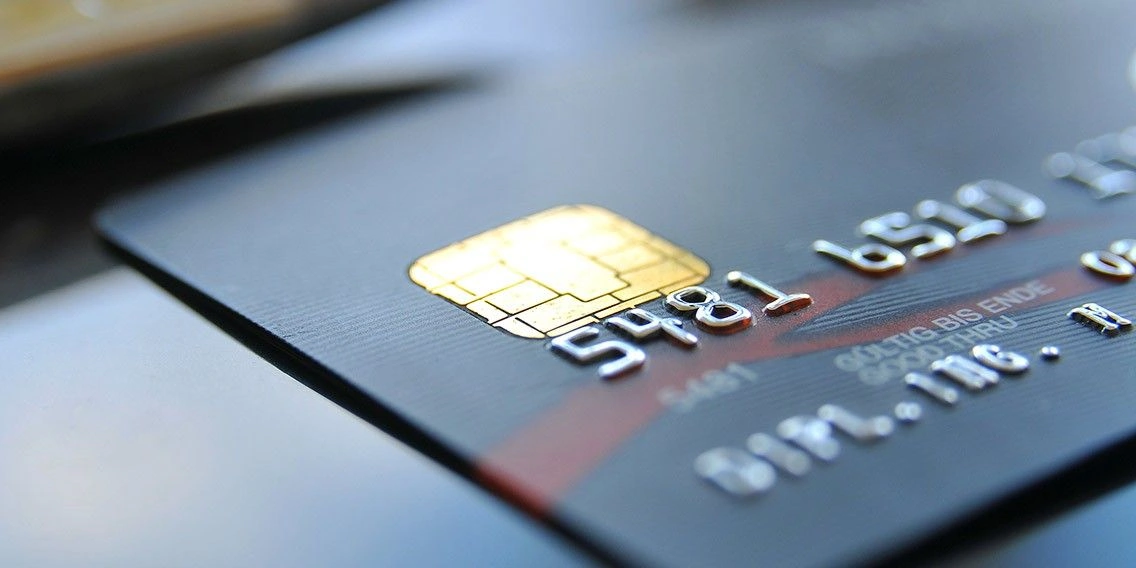PERSONAL LOAN
What's the Difference Between a Payday Loan and a Personal Loan?
EXPECTED READ TIME: 7 MINUTES
Your bills are due, your daughter’s tuition looms, and your engine has sprung an oil leak — all at the same time. If you need to borrow money fast, where do you turn? A family member? A friend?
A payday lender?
You might think a payday loan sounds like any other, but when it comes to payday loans, there are definitely safer, cheaper options you should consider. We’ll help you understand the difference between a payday loan and an ordinary personal loan so you can make the best choice for you.
Differences Between Payday Loans vs. Personal Loans
The main difference between payday loans and personal loans is that payday loans are very short-term, high-interest loans while personal loans have longer terms and lower interest.
There are also important differences in who makes the loan, the total cost of the loan, and how each will affect your credit score. It’s important to understand these differences before you commit to a loan.
| Payday Loans | Personal Loans |
|---|---|
| Issued by payday loan companies | Issued by banks, credit unions, and online lenders |
| Repaid in 2 to 4 weeks | Repaid in 12 to 60 months |
| Usually have a $500 limit | Can usually borrow between $1,000 and $100,000 |
| High interest — often 400% APR or more | 4% to 36% interest charged |
| Finance charge per $100 borrowed | Application fee and loan origination fee |
| Not reported to credit bureau unless you fail to pay | Reported to credit bureaus |
| Easy approval | Usually requires a credit score of 580 or greater |
Loan Issuer
Payday loans are made by companies that specialize in these loans. You may have seen their outlets in gas stations, pawn shops, shipping stores, or places that advertise check cashing. In many states, payday lenders are not subject to the same restrictions as banks and credit unions.
Personal loans are issued by banks, credit unions, and online lenders. Each state sets usury laws governing the terms and interest rates financial institutions can set for loans. As a result, financial institutions offer better terms and interest rates than payday lenders.
Repayment
It’s in the name — lenders expect you to repay a payday loan when you get your next paycheck. Depending on your terms, this might be in two weeks or four weeks. Some lenders do allow borrowers to roll over their balance as long as the borrower covers the finance charge for the loan.
Personal loans can have repayment terms as short as 6 months, but most offer at least 12 months to repay them — and some have terms as long as 84 months!
Difficulty With Repaying Payday Loans
Many borrowers struggle to repay payday loans because the whole loan amount is due at once. Even if they repay their loans, they start a new pay period short on cash. They may need to borrow again until their next check, creating a cycle of debt.
In some cases, lenders can withdraw funds from your bank account if you do not pay on time.
Borrowing Amounts
Payday loans are intended to be small. Most are $500 or less, but some lenders will offer up to $1,000.
Many financial institutions require borrowers to take out a minimum of $1,000 for a personal loan. The maximum amount you can borrow depends on your lender, your credit score, and market factors.
Interest Rate (APR)
Payday loans have much higher interest than personal loans — often 400% APR or greater. As a comparison, credit cards are considered a form of high-interest debt with APRs of 12-30%.
As of 2022, interest rates for personal loans range from 4%-36%. Your exact rate will be determined by your lender and your credit score.
Fees
Finance charges — which make payday loans notoriously expensive — average around $15 for every $100 you borrow. A finance charge is an upfront fee, meaning it’s applied to your principle when you accept the money.
80% of payday loans get rolled over, meaning the balance is carried over to a new loan period instead of getting paid off. That’s a problem for borrowers because lenders can charge additional finance charges each time you roll over a loan. So, if you roll over that $200 loan twice at a typical rate, you would owe $90 for a 6-week loan. That’s almost half the amount you originally borrowed!
You’ll also pay fees with a personal loan, but these fees are much lower. Common fees include an application fee of $25-$30 and a loan origination fee of between 1%-6% of the total amount you borrow.
Impact on Credit Score
Payday loans will not help you build credit, but they can hurt your credit. Most payday lenders don’t report payments on payday loans to credit bureaus, meaning a good payment history won’t reflect on your credit report.
Payday lenders will refer borrowers to debt collection agencies if they don’t pay on time. Nonpayment is also reported to credit bureaus and can damage a borrower’s credit score.
Your credit score may drop temporarily when you first take out a personal loan. That’s because you’ll need to undergo a hard credit inquiry as part of the approval process. Personal loans also get reported to credit bureaus. Every payment you make helps build your credit history, but missed or incomplete payments can drop your credit score.
Approval
One of the most appealing parts of payday loans is the easy approval process. As of July 2020, payday lenders do not have to assess a borrower’s ability to repay a loan, meaning payday lenders don’t have to check your credit or examine your finances. All that’s required is applicants must:
- Show proof of income
- Have a checking account
- Be at least 18 years old
- Provide a valid form of ID
This might sound great, but the downside is that payday lenders can make loans that borrowers won’t be able to pay back. Rollover fees are high for payday loans (often $10-$30 for every $100 borrowed). Any loans that aren’t paid back immediately will grow much faster than ordinary loans.
The approval process for personal loans is easier than for other types of credit (such as mortgages) but harder than for payday loans. Lenders will decide if you qualify for a personal loan based on factors like:
- Your credit score
- How much you’re borrowing
- How long you’re borrowing the money for
- Market factors like the prime rate set by the Federal Reserve
How to Qualify for a Personal Loan
No one wants to be turned down, but the approval process for personal loans protects borrowers from taking money they can’t repay. If you’ve been turned down for a personal loan, there were ways to improve your credit score and take control of your debt so you can be a stronger applicant.
Similarities Between Payday Loans vs. Personal Loans
Payday loans and personal loans are very different means for borrowing money, but they have some similarities, too. Both are fast, flexible ways to get the cash you need. They can also be refinanced for better terms.
Fast
Both payday loans and personal loans can put money in your pocket rapidly. You can walk into a payday lender and leave with the money you need within the hour. The personal loan process is pretty fast, too, with some online lenders distributing your funds within 24 hours.
Flexible
Some types of loans (think auto loans, student loans, or mortgages) can only be used to pay for certain things. Payday loans and personal loans both give you the freedom to use your money for almost anything.
Refinancing
Refinancing is a process of taking out a new loan to pay off existing debt. You can refinance both payday loans and personal loans if you have a good credit history and a record of making payments on your existing loan.
You can refinance a payday loan through a payday lender, but this may leave you owing even more than you did originally. Banks, credit unions, and online lenders generally offer much better terms for refinancing using a personal loan.
Are Personal Loans Better Than Payday Loans?
Personal loans are better than payday loans because they’re cheaper and safer.
Some states don’t allow payday lending and consider it a predatory lending practice. The fee structure and high APRs of payday loans can trap borrowers in a cycle of debt that is hard to break.
Even if you are able to pay off your payday loan, you’ll spend two, three, or four times as much as you would with a personal loan.
Payday loans may seem like a quick and easy fix, but more often they make your situation harder.
The Takeaway
Most people will have to borrow money from time to time, and that’s ok. Your goal shouldn’t be to avoid borrowing, but to borrow wisely. And you can do that by borrowing from trusted lenders who offer fair terms on personal loans.
Learn More About Personal Loans from PenFed
Discover the diverse offering of products, services, and support available to our members.




